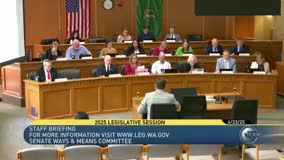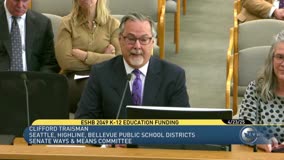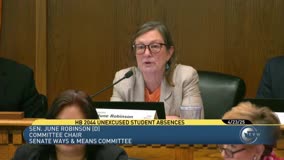Article not found
This article is no longer available. But don't worry—we've gathered other articles that discuss the same topic.

Major business tax changes advance in Ways & Means hearing; employers urge targeted exemptions

Committee hears K-12 funding bill that shifts monthly apportionment and reduces LEA counts for some online students

